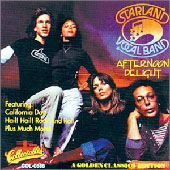- Home
- Introduction, Update Information, Links
- The Super Seventies "Classic 500"
- Readers' Favorite Seventies Albums
- Seventies Single Spotlight
- The Top 100 Seventies Singles
- Favorite Seventies Artists In The News
- Seventies Almanac - Year By Year
- Seventies Singles - Month By Month
- Seventies Albums - Month By Month
- Seventies Daily Music Chronicle
- Seventies Superstars In Their Own Words
- The Super Seventies Archives
- Seventies Trivia Quizzes & Games
- Seventies MIDI Jukebox
- The Super Seventies Bookstore
- The Super Seventies Photo Gallery
- Seventies' Greatest Album Covers
- Popular Seventies Movies & TV
- Seventies Celebrity Portrait Gallery
- Seventies Lyrics Hit Parade
- Top Seventies Artist Music Videos
- Seventies Usenet Music Forums
- Seventies Smiley Calendar
- EXTRA!
- Superseventies.com Facebook Page
- Superseventies.com Reddit Discussions
- The Super Seventies Blog
- Tweet The Seventies
- RockSite InfoBank
- Beatlefan Site
- Thanks For Your Support! / Top Sellers
- Search The Rock Site/ The Web
The Starland Vocal Band
Windsong 10588
Jul. 1976
Billboard: #1

![]() he Starland Vocal Band was the creation of a clean-cut, all-American couple named Bill and Kathy "Taffy" Danoff. On the wings of angelic harmonies -- and with a little help from a superstar-pal, they soared to the top of the Billboard
Hot 100 on July 10, 1976, with "Afternoon Delight."
he Starland Vocal Band was the creation of a clean-cut, all-American couple named Bill and Kathy "Taffy" Danoff. On the wings of angelic harmonies -- and with a little help from a superstar-pal, they soared to the top of the Billboard
Hot 100 on July 10, 1976, with "Afternoon Delight."
By the late '60s, folksinger Bill Danoff (born May 7, 1946, in Springfield, Massachusetts) was working nights as the light and sound man at the Cellar Door club in Washington, D.C. There, he met John Denver, who was near the end of his stretch fronting the Chad Mitchell Trio. Soon Denver recorded Danoff's "I Guess I'd Rather Be in Colorado," and the friendship between them was cemented when they co-wrote the Rocky Mountain tycoon's first smash hit, "Take Me Home, Country Roads."
Meanwhile, Bill and his wife Taffy (born Kathy Nivert on October 25, 1944, in Washington, D.C.) had been scuffling around the folk circuit fronting a quintet called Fat City, which gradually lost members until only the Danoffs remained. As "Bill and Taffy," they recorded a pair of RCA albums, Pass It On and Aces. Following their failure, Bill found himself making a difficult career decision.

"I wasn't really looking to put a group together," he continued, "but I just thought that if we were going to have a group, it would be a good idea to have the four of us... I was thinking about the vocal idea, how we all got along and how it would work."
Calling themselves the Starland Vocal Band, the quartet finely-tuned its rich pop harmony sound before becoming the first act signed by Denver to his new Windsong label. In November, 1975, during the recording of the group's debut album, Taffy delivered a baby. It was a favorable omen. Released as the first single, "Afternoon Delight" entered the Billboard Hot 100 at number 87 on May 8, 1976. Nine weeks later the Starland Vocal Band and Windsong Records had their first and only number one single.
According to an account in Rolling Stone, Taffy credited the song's creation to a culinary repast. "Bill wrote this after having lunch at Clyde's in Washington, D.C.," she explained to an audience before performing the song. "It seems Clyde's has a menu called 'Afternoon Delight' with stuff like spiced shrimp and hot Brie with almonds. So Bill ate it -- the food, that is -- and went home and explained to me what 'Afternoon Delight' should be."
Danoff acknowledged that audiences might find hidden meanings in the song. "I didn't want to write an all-out sex song," he told Dennis Hunt of the Los Angeles Times. "I just wanted to write something that was fun and hinted at sex. It was one of those songs that you could really have a good time writing."
The Danoffs thought they might have had a problem getting airplay on "Afternoon Delight," but few stations found it objectionable. "If the song had been banned it would have been a real injustice," Bill said in the Times. "The lyrics are subtle and sophisticated and not at all raunchy. It might have been banned years ago but not today."
The following spring, the Starland Vocal Band was awarded the Grammy for Best New Artist of 1976. Rear View Mirror, the follow-up to their 1976 debut album, was released by Windsong in June 1977. It wasn't nearly as successful as its predecessor, peaking at number 104 on the Billboard Hot 200 and remaining on the charts for 13 weeks.
- Fred Bronson, The Billboard Book of Number One Hits,
Billboard, 1988.
![]() Reader's Comments
Reader's Comments
No comments so far, be the first to comment .
![]() Main Page
| Additional Singles Intro
| Singles By Month
| Seventies Almanac
| Search The RockSite/The Web
Main Page
| Additional Singles Intro
| Singles By Month
| Seventies Almanac
| Search The RockSite/The Web


